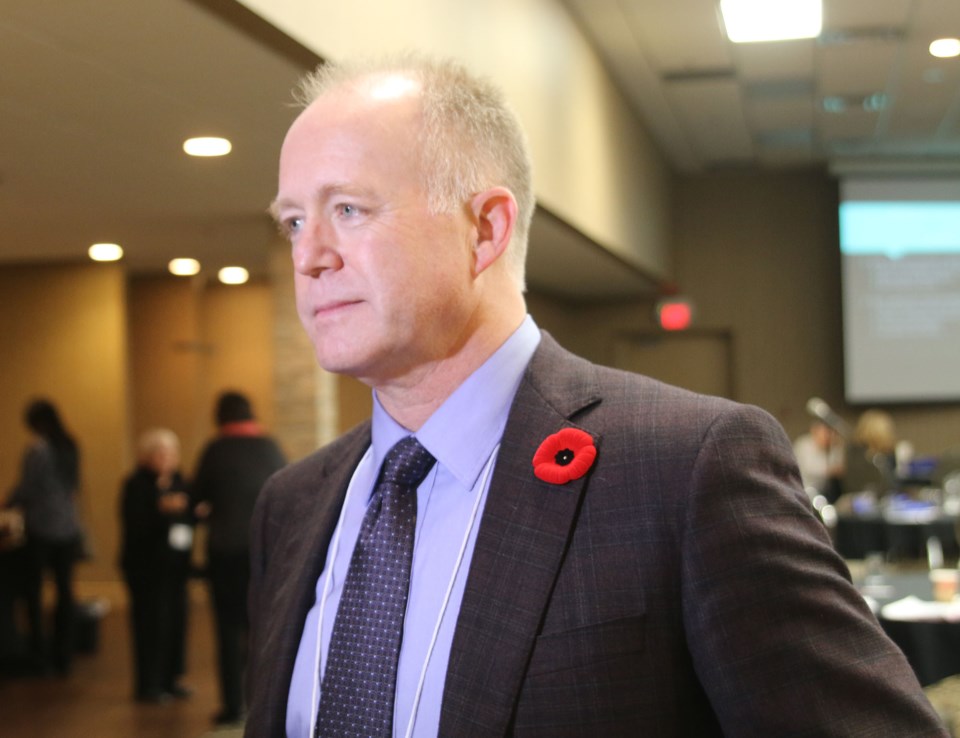THUNDER BAY - The challenges involved with providing palliative care in remote communities are almost entirely predictable, which is why palliative care physicians say careful planning is key to overcoming barriers.
This week, the Lakehead University Centre for Education and Research on Aging and Health is hosting the bi-annual regional palliative care conference in Thunder Bay. This year’s conference was entitled: Caring for Each Other: Connections in Communities.
Access to palliative care in remote communities was one of the focuses at this year’s conference. Dr. Mike Harlos, medical director for the Winnipeg Regional Health Authority Palliative Care Program, provided the opening keynote address on planning and supporting palliative hospital discharges into remote First Nations communities.
According to Harlos, there are a number of complexities in planning palliative care in remote communities. However, through proper care plans, individuals and care providers should be able to plan and preempt the challenges that arise.
“There really shouldn’t be surprises in this process,” Harlos said. “The most important message is to consider ahead what might unfold and almost always what will unfold and to plan for it in a meticulous way. If you are in a city where there is a lot of resources, there maybe is a little more forgiveness for not having prepared for something, but in a remote community, if you anticipate something might happen but figure you will deal with it at the time, then you are set up for failure.”
One of the biggest challenges facing remote communities is access to local resources.
“We know that most people, if they could, would like to stay at home and die at home,” Harlos said. “Some of the resources can be put into place, like medication, but almost what is always lacking is local human resources.”
Harlos added that these kinds of challenges are also a failure on the part of the health care system. And while things are starting to change, it has been a slow process.
“What I’m seeing is a realization,” he said. “Instead of the light going on, it’s more like a dimmer switch that is gradually being tuned up and people are realizing that this is an important issue. What may have put it on people’s landscape is medical assistance in dying.”
Last January, the federal government passed a law making medical assistance in dying (MAiD) legal. Dr. Kevin Miller, a palliative care physician at the Thunder Bay Regional Health Sciences Centre, participated in a public discussion panel at the conference on what medical assistance in dying means for palliative care in Northwestern Ontario.
“As a palliative care physician, my expectation is that I’d like to make sure we are providing effective palliative care to provide comfort and quality in living for patients with life threatening and terminal illness, but we also recognize as the palliative care community, that with the legislation of MAiD, that this is something people want to have information about,” he said.
Echoing Harlo’s keynote address, Miller agreed that just like providing proper palliative care in remote communities, offering medical assistance in dying also requires preparation and meticulous planning.
“Anything we are doing in Northwestern Ontario, it is something that needs to be planned and prepared for,” he said. “It is not something that is easily delivered and both for patients, families, and the community it is important that we are thinking about the implications of these decisions and preparing for that.”
According to Harlos, the concept of palliative care is a moving target, so it is difficult to say when all of the challenges and barriers will be completely removed. However, Harlos believes that the government is starting to realize that with an aging population, more resources are needed for palliative care in remote communities and urban centres.
“I’m optimistic that within in a year we will see an increase in focus on the importance of palliative care,” he said. “There is some talk of reenacting the palliative care secretariat at the federal level, which I think would be critical in creating advocacy across the country.”
The Regional Palliative Care Conference continues until Nov. 4 at the Victoria Inn.
